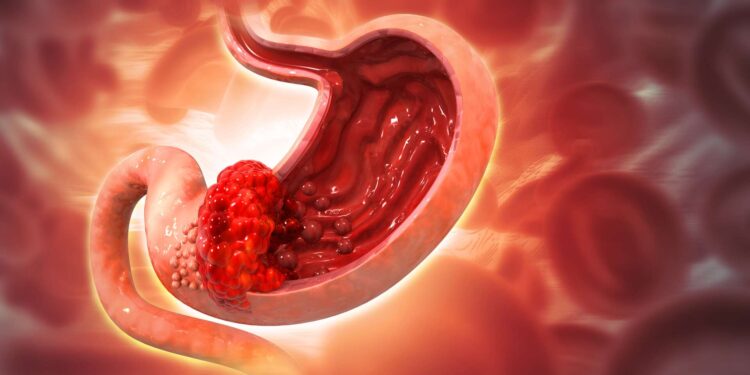Helicobacter pylori, the only bacteria responsible for gastric cancers? A new study denies this and highlights another common bacteria involved in the risk of stomach cancer. Researchers have identified its mechanism of action, which opens the way to the development of treatments aimed at reducing this risk.
A new study from Nanyang Technological University in Singapore and the Chinese University of Hong Kong suggests that two common bacteria may act together to promote the development of stomach cancer. The first one, Helicobacter pylori, is already known to cause an infection that increases the risk of stomach cancer when it becomes pathogenic. However, only 1 to 3% of people infected with the bacteria develop cancer. The researchers therefore examined the intestinal microbiota (excluding H. pylori) in patients at different stages of gastric cancer to identify another bacteria likely to promote the appearance of cancer.
Among the five oral pathogens strongly present in the gastric mucosa of these patients, Streptococcus anginosus stood out. This bacteria already present in the mouth, throat, intestines and vaginavagina can cause mild infections when the immune systemimmune system is weakened.
Streptococcus anginosus induces progressive gastric inflammation
Experiments carried out in mice have shown that colonization of the stomach by S. anginosus triggers an acute, then chronic, inflammatory response. “ Infection by S. anginosus spontaneously induced a gastritisgastritis chronic progressive, a atrophyatrophy parietal cells, mucinous metaplasia and dysplasiadysplasia in mice », write the authors of the study published in the journal cell. The researchers also found that disrupting a proteinprotein on the surface of S. anginosus — which it needs to communicate with the cells of the stomach lining — reduced its ability to contribute to stomach cancer, which could represent an interesting therapeutic avenue.



